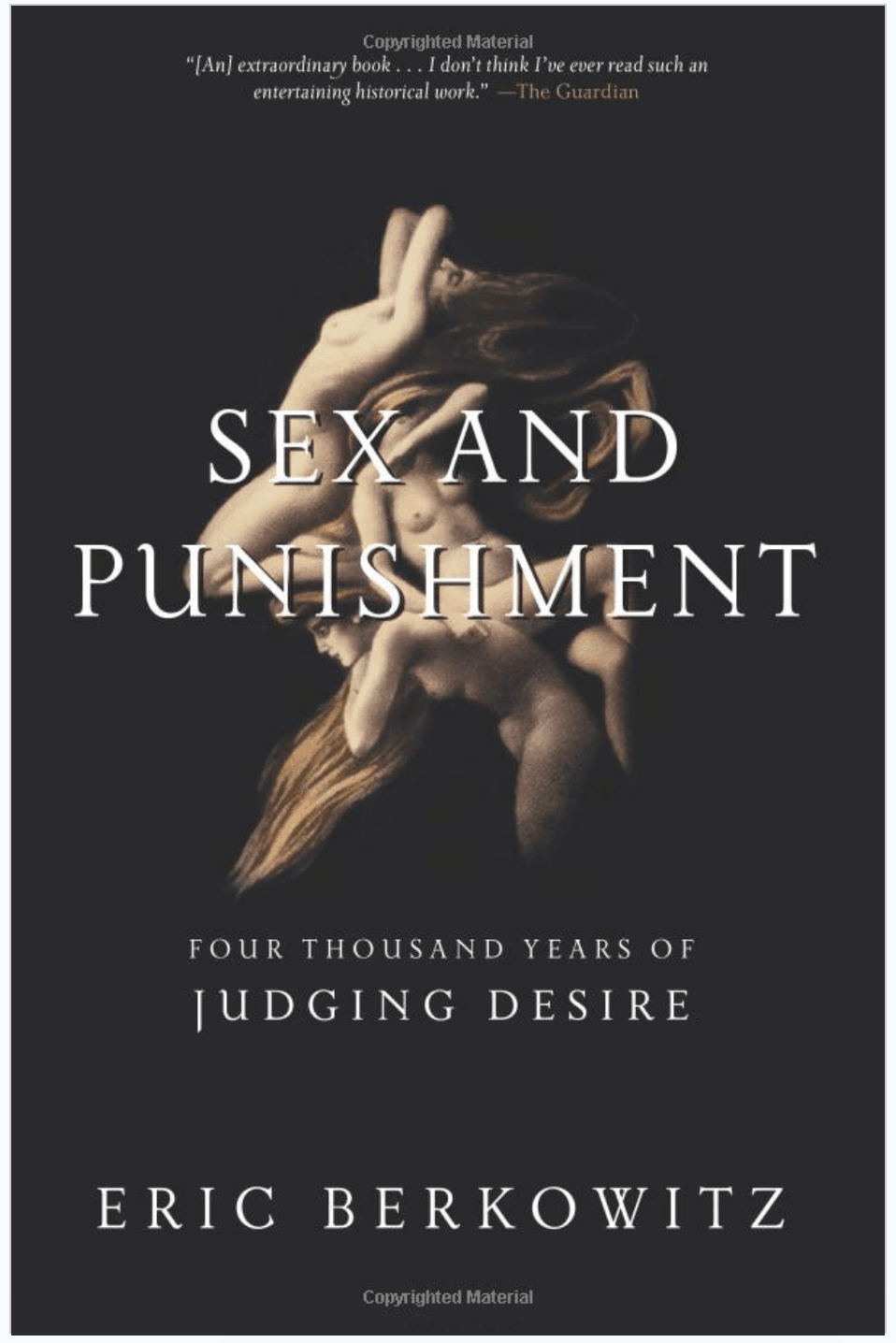All of you who know me know that I am quite the bookworm: I love reading, I love investigating what to read next, and I love writing about what I read. So when a few other Dommes and I started TopSHELF, I was beyond excited – our own reading club focused on books that were related to our craft! It’s sometimes exceedingly hard to find properly written books about BDSM, FemDom particularly, that are not just projection, fantasies, or ill-informed. Here’s where I found “Sex and Punishment: Four Thousand Years of Judging Desire”, which was recommended to me by Domina Lyra, another fellow bookworm and history nerd (you really need to check out her greek myth-inspired pictures).

The book, written by Eric Berkowitz, follows the history of the laws regarding sex and sexual acts, as well as their application, during the last 4000 years, and up to Oscar Wilde’s homosexuality trial. It doesn’t touch as deeply as I would have liked upon the subject of sex workers and their lives, and is sometimes unsurprisingly lacking in empathy when trying to come from a place of un-biasedness, but is still full of interesting insights and a good bit of post-colonialism.
Full of ideas for (not so) new punishments (be them from inquisitorial times, a favourite of mine, inspired by the Talmud or just your regular XIXth century debauchery), the book is an interesting read for any Top looking to draw some interesting ideas for sessions.
It’s, however, worth remembering that the receivers of these punishments were not wealthy white individuals: more often than not, it was black, brown, poor and sex working people who were tortured to death for things that had more to do with crowd control and maintaining social classes a certain way than with sex itself. After all, morals (and lawfully enforcing them) have served very well to keep social mobility to a minimum well before capitalism kicked in. So if you ever need a reminder on why you should #giveyourmoneytowomen, hire black workers, or pay sex workers, I suggest you pick any of the chapters that cover European lawmaking in this book and you should feel inspired to enact restorative justice right away.
Whether you’re into historical BDSM research, just general sex history or looking to develop a critical view on public morality (and its many, many misuses), this book is a fantastic read – as long as we keep in mind the biases of its author, and how his attempt at keeping a semblance of neutrality really reads.
Care to discuss your reading choices intimately?
Book me, then.







